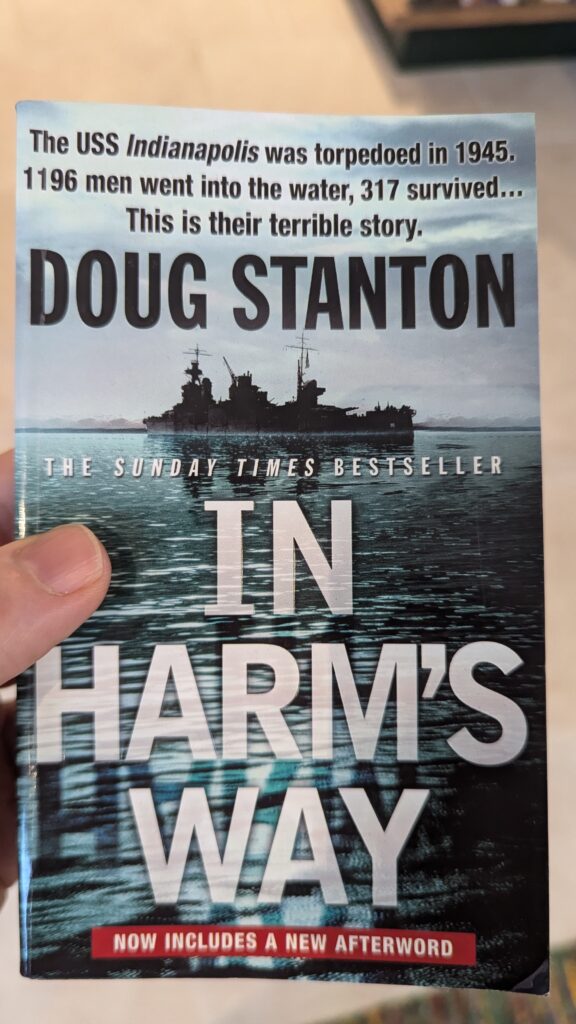
After finishing Quint I enjoyed reading author Robert Lautner’s notes about the writing of his novel, particularly his praise that one of his sources In Harm’s Way (the true account of the sinking of the USS Indianapolis) was the best history book he’d read. Quite the recommendation, I simply had to get hold of a copy. Turns out that he wasn’t wrong.
The thread here starts with the famous scene in Jaws where the shark hunter Quint delivers his gripping monologue about his experience surviving the sinking of the USS Indianapolis, the US Navy vessel that delivered the components for the first atomic bomb.
This then inspired Lautner’s fictional origin story for Quint, creating a rich history of the character who creates that piece of cinema legend.
And Lautner was also inspired by Doug Stanton’s masterpiece In Harm’s Way, the true incredible tale of the worst single vessel disaster in US Navy history.
The tale begins with the secrecy of the ship’s cargo – the Little Boy bomb structure and a separate case containing the uranium fuel itself. After delivering this at record speed, on the onward voyage the Indianapolis was subsequently torpedoed by a Japanese submarine.
The context was tragic; no escort for the ship, no warning given of previous submarine sightings, the first ever successful hit by that particular submarine, and the very last major sinking of WW2.
The Indianapolis was only lightly armoured, and was in fact hit by two torpedoes. 300 men were already dead before the ship sank, which took just 12 minutes.
From that point, the tales of bravery, courage, grit, leadership, and comradeship are beyond comprehension. A succession of errors by navel administrators compounded by poor process and standing orders meant that the men had to survive in the water for over four days before rescue finally arrived. Those long days and nights were a physical and mental ordeal with little comparison. Many of the men had severe injuries from the initial torpedo explosions. No food or water at all for the vast majority; some in insufficient rafts, the rest floating in inadequate life jackets; a relentless tropical sun during the day, with hypothermia conditions through the night. And then the sharks.
Only 316 men were rescued – of the near 600 that died floating in the ocean, an estimated 50 were taken by sharks each day.
The shipwrecked men were separated into a few groups, each with leaders that showed heroism of the highest order. The mental fortitude to keep not just yourself alive through that ordeal but also your men, many of whom are delirious with lack of water, sleep, and food… Just incredible stuff.
I could go on, but I would strongly encourage you to read this book; it’s a compelling story but written so brilliantly you barely notice the pages turning.
